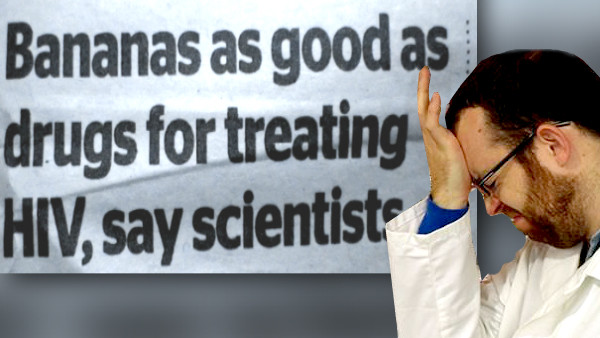7 Reasons Everything You Know Is Probably Wrong
3. Media Hype

Let's play a quick game of pretend: Just pretend that you are the editor of a national newspaper looking to fill some science column inches with something that will capture the public's attention. Across your desk comes two press releases, one that claims to have found that, say, eating chocolate prevents cancer*, and another that says that, actually, a cancer diagnosis is mostly down to bad luck and some genetic factors and there's really nothing you can do about it anyway?
I know which I'd go with.
The result of this is that the media tend to massively overstate the reliability of studies either because (a) The journalists themselves don't understand their unreliability or (b) to make it seem significant enough to justify buying the paper/clicking the link.
What's more, we are more likely to believe studies that tell us what we want to hear, and this in itself creates a feedback loop to the scientific community, as many scientists' careers live and die on public interest. There is no cost to being wrong, but there is a cost to being unpublished, and you are more likely to be published and reported if you find a novel new way of telling people what they want to hear, which in turn might turn you to p-hacking a study to say that eating chocolate and drinking wine is good for your heart, because you know that will make it to the front page of the Daily Mail.
*These two are usually the worse offenders. Another fun** game is to Google either "Eating chocolate helps [random effect]" or "[random thing] causes cancer" and, regardless of what you put in, you'll usually get a result.
**If you like that kind of thing.